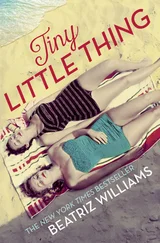We decided to stay at the Hotel Beijing, which was less modern and also less expensive than the St Regis and other centrally located hotels. I suggested going up to the top of the building to see the layered roofs of the Forbidden City and, to the west of the hotel, the giant Tiananmen Square and the magnificent structures around it. But Orit was eager to explore the narrow streets and alleyways, known locally as hutongs, described in the novels about China she read so voraciously in the months after we decided to come here. At the rate of a few thousand a year, these alleyways were disappearing and being replaced by huge modern buildings.
Not far from the hotel we found a neighbourhood of hutongs bordered on each side by high stone walls with an assortment of oddly angled gates every few dozen metres or so. In the past, these gates were the entrance to a single family home built around an inner courtyard. But the Communist regime confiscated these houses and squeezed in more and more people. Every such gate now had the names of five or six families attached to it, each one occupying a different side of the courtyard while others lived in makeshift buildings in the middle of the yard.
We strolled through the hutongs, each of us registering a somewhat different impression. Orit enjoyed the exotic sights whereas I complained about their gloomy drabness: she was amazed by how content the residents seemed to be despite having so little, while I drew attention to the poverty the regime had forced on them. The houses didn’t even have a drainage system and every few hundred metres we came across public toilets for the use of the hutong residents.
Years of lookout duties, including those on icy cold nights, trained me to hold in the urge to pee. But when my bladder could take it no more I rushed into one of these public buildings and then fled as quickly as I could, breathless from the overwhelming stench, embarrassed by the sight of bare bottoms in the open cubicles around me. Fortunately for Orit, as was true of most women I knew, she was more skillful at controlling this particular impulse and managed to keep going till we returned to the hotel.
She wanted to eat at a local restaurant and so, much to my regret, I had to give up on the promising-looking hotel eatery and stroll back with her in the direction of the hutongs. I found the smells coming out of the kitchens of some of the tiny restaurants–apparently the odour of various insects being fried–nauseating. But Orit thought them intriguing, even appetizing. We compromised on a bigger restaurant at the juncture of the hutong and the main street.
The English-Mandarin phrase book, used very skillfully by Orit from the moment we arrived, proved, on this occasion, to be of little use. One expression, bou-yaou-la , not spicy, was understood, and the second, do you have a fork? was answered in the negative. Not one of the suggested dishes appeared in the phrase book and none of the meals written up–other than rice and noodles–was available. Three years of learning Mandarin at the university turned out to be of no use; not only were the five thousand ideogram-words dependent on a context, but every slight variation of pronunciation or intonation utterly changed their meaning. I became tongue-tied when I discovered that, for example, ‘ma’ meant mother in one intonation, a lewd curse in a higher tone, a different sort of curse if the pitch was lowered, and a horse if the lilt went down and up.
After a tiring negotiation, the restaurateur invited Orit into the kitchen. She entered it with a huge smile which caught the fancy of the cooks, and chose our dishes. It’s good you didn’t go in there, she told me after we’d left, you wouldn’t have eaten a thing.
The following morning we visited the Temple of Heaven, located slightly to the south of our hotel.
In the vast gardens that surround the glorious complex of ancient buildings, we were surprised to find several couples dancing, somewhat theatrically, to the sound of a Strauss waltz. Further in were groups of people training in Tai chi or practising swordsmanship. In each corner of the square, close to the Temple gates, four elderly men were playing on what appeared to be improvised or ancient stringed instruments and below the arches of the gate itself, a man and a woman, each holding a loudspeaker, stood singing.
We paused, hugging each other, gazing at the magical scenes. Amazing, isn’t it? said Orit, her eyes gleaming with happiness. Did you know that it was going to be this lively?
Our belongings, shipped after we had left, were delivered directly to the apartment we had picked in a new multi-storey building in the diplomatic quarter of Beijing. Immediately after settling in, we continued with our tours of the city and the surrounding area. We felt like a couple on an extended honeymoon, a rite of passage we hadn’t celebrated at all after our wedding.
Once more I heard Orit say the words ‘I love you’ as we made love. She was in love again–with me, with the city, with the Chinese, with hope. I’d never stopped loving her and now, in Beijing, that love was being reciprocated once more.
The period of settling in was over and I had to go back to work. I needed to get to know different cities and prepare field files of various neighbourhoods in these urban areas. As the only agent in China, these tasks took me far away from home. Though the timing was up to me, the enormity of the country and the astronomical cost of airline tickets compelled me to complete my work in every region in one go–never less than a week. At first Orit joined me on trips to the more beautiful areas. But in due course she ceased to do so. While I prowled the city streets to complete my field-files, Orit roamed through the parts of Beijing that she loved–the silk market, food emporiums, the artists’ quarter with its numerous galleries and coffee shops, and the restaurants and cafés along the lakes in the city centre. She much preferred that, even if it meant being without me.
I knew that Orit’s love affair with Beijing was tied up with the hope that Chinese medicine would help her become pregnant. By simply taking her pulse, the Chinese doctor who treated her while we were still in Israel diagnosed the extreme tension Orit was under, especially when I was away. Later on, she also identified weaknesses in both Orit’s kidney and liver energies. I didn’t understand the connections, so the doctor patiently explained that kidney energy is linked to hormones and the quality of a woman’s ova, and that liver energy plays a role in regularizing her periods. She suggested that I also have acupuncture but I was not free at the time and found it difficult to accept the idea of energy channels in the body–meridians as the doctor called them–in which blockages are released by acupuncture. Unless a billion Chinese are mistaken it seems that I was wrong.
In China, they deal with internal problems, including fertility issues, mainly with the aid of ‘medicinal herbs’ defined to include a host of ingredients from crushed snakes to cooked beetles. Fortunately for Orit, the only non-vegetarian content in the gynecological medicinal herbs that she had to drink twice a day was the innards of a sea turtle’s shell.
At the clinic, Orit watched as one woman after another became pregnant. When her hopes led to nothing but disappointment, she decided that artificial insemination was our only alternative. And that is something I don’t intend doing in one of the hospitals here, she said.
In her dejected mood, Orit now seldom left the apartment as she had been doing whenever I was not in town. My trips became more and more difficult for her to bear, and she felt increasingly homesick for her parents.
I informed HQ that we wanted to come back so that Orit could undergo fertility treatment in Israel. The pressure on me to postpone this was unexpectedly light and the authorization for us to leave came surprisingly quickly.
Читать дальше












